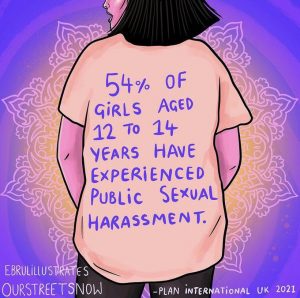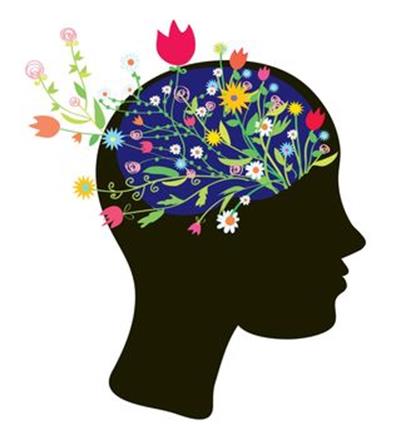Sexual harassment and mental health
When I was 10 years old, I experienced public sexual harassment (PSH) for the first time when a group of teenage boys shouted rude comments at me from a van. It made me feel like an object. Since then, I have been subjected to countless catcalls, wolf whistles and inappropriate comments, which has had a massive impact on my self-confidence and mental health. I know this is not just my experience. This is the experience of countless young women in the UK, and across the world.

Image ref: swlondoner
PSH consists of unwanted and un-consensual attention, sexual advances and intimidating behaviour that occurs in public spaces, such as at school, public transport or in clubs. PSH is directed most towards women and other marginalised groups in society, but anyone can experience it.
More than 1 in 3 girls in the UK have received unwanted sexual attention such as being groped, stared at, catcalled and wolf-whistled whilst wearing their school uniform in public. Read more here
From personal experience, the negative attention I received in school uniform was a lot more common than in everyday clothes. This behaviour has been normalised and is just seen as part of growing up, particularly in big cities.Research has shown that harassment can contribute to trauma-like symptoms that have a negative effect on victim’s mental health and self-esteem. Young women have described their experiences with PSH as frightening, threatening, intimidating and making them want to disappear. It has such a massive impact on young people’s mental health, yet it is not talked about.
There are some easy ways to remove the stigma and be a change in breaking down the culture that allows this behaviour to persist. Being an active bystander is a key element of this; if it is safe to do so try to step in when you witness PSH and explain to the perpetrator why it is not okay. If you hear your mates making inappropriate jokes about women or other marginalised groups, try to call them out. Sitting back and allowing the behaviour to happen is enabling it and allowing it to persist.

Image ref: Safeguarding network
For those struggling with the effects of PSH on their mental health: remember that it isn’t your fault and that your worth is not defined by these horrible experiences. Look after yourself, talk to friends or family and seek out professional help if needed.
Resources and further reading
- OurStreetsNow https://www.ourstreetsnow.org
- Support After Rape and Sexual Violence Leeds (13+): FREEPHONE – 0808 802 3344
- Look at the research https://plan-uk.org/street-harassment/its-not-ok
- TEXT – 07860022880 http://supportafterrapeleeds.org.uk/services/helpline
- For any Leeds University students: SASHA society https://sashaleedsuni.wixsite.com/sashaluu



It’s really sad we girls have to go through so much pain it’s not fair that nearly every day girls get public sexual harassment (PSH). People go for a walk and end up coming back home crying because they got public sexual harassment (PSH) that’s why you should go out with a parent or a carer so they can help you out when you get public sexual harassment (PSH). But if you get public sexual harassment (PSH) make sure you go to mind mate it will really help or talk to someone you can really trust.